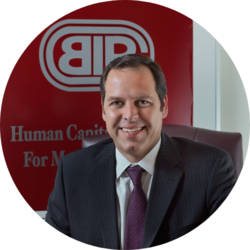
In the past, Human Resources (HR) has been more of a support role, focusing mainly on administrative things like payroll, benefits management, and labor law compliance. These days, however, HR plays an indispensable strategic function. HR leaders no longer only guard policies and procedures; they’re now major drivers of organizational success. A successful HR executive has a special blend of qualities and skills that align with workforce needs and organizational goals. Let’s focus on the primary strategies for developing into a great HR leader.
Embrace Adaptability and Continuous Learning
Fresh challenges like changing technology, regulations, and consumer behavior are inevitable in business. Therefore, exceptional HR leadership is marked by the ability to “go with the flow,” or adapt smoothly to these changes. Leadership coach Sarah Devereaux insists that HR leaders must be flexible and resilient, constantly refreshing their knowledge and skills to stay ahead of industry trends and regulatory shifts (HR Daily Advisor). With this adaptability, they can manage crises as they arise and introduce forward-thinking tactics that keep the organization ahead of the curve.
At the heart of this adaptability is a commitment to continuous learning. Top-notch HR leaders are dedicated to their growth and inspire the same dedication in their teams. A culture that values learning keeps the organization nimble and well-prepared for the future.
Cultivate Emotional Intelligence
Emotional intelligence (EI) is the foundation of HR leadership. Leaders with high EI are good at understanding and managing their own and others’ emotions. This skill is essential in building relationships and resolving conflicts, both of which are necessary for creating a positive workplace culture.
Moreover, with strong EI skills, HR leaders can manage complex interpersonal dynamics and make compassionate decisions per the company’s mission. This balance of empathy and strategic thinking sets superior HR leaders apart.
Align HR Strategies with Organizational Goals
One of an HR leader’s most important responsibilities is to align HR strategies closely with overall business objectives, which involves designing HR programs to support the company’s vision, mission, and goals. For example, suppose the company aims to be a leader in sustainable practices. In that case, the HR executive should recruit talent with sustainability expertise, offer training on eco-friendly practices, and develop programs encouraging environmental responsibility.
Great HR leaders also leverage HR analytics to better understand workforce trends, identify areas for improvement, and measure HR initiatives’ impact on organizational performance. In this way, HR operates not merely as a support function but as a key contributor to the company’s success.
Champion Diversity, Equity, and Inclusion (DEI)
Beyond buzzwords, diversity, equity, and inclusion (DEI) are vital elements of a flourishing business. The best HR leaders actively work to create an inclusive environment where all employees feel valued, heard, and respected. This work involves executing policies and practices that promote diversity in hiring, career development, and leadership opportunities. A diverse workforce have varied cultural insights and help tailor products and services to help meet the needs of a diverse global marketplace.
HR leaders must also proactively address unconscious biases and promote an inclusive culture through ongoing education, open dialogue, and a commitment to making DEI a core organizational value. By prioritizing DEI, HR leaders can help the company build a more innovative, engaged, and productive workforce.
Develop Strong Leadership and Coaching Skills
At its core, HR leadership is about inspiring and empowering others to reach their highest potential. Exceptional HR leaders are managers, sure, but they’re also mentors who guide their teams toward professional growth. As leadership coach and author Robin S. Sharma says, “Leadership is not about a title or a designation. It’s about impact, influence, and inspiration” (Reflektive).
True HR leadership also requires influencing people and connecting across all organizational levels. The best HR experts use their credibility and influence to build strong, trust-based relationships with executives, managers, and employees.
Prioritize Ethics
HR leaders need to prioritize ethical behavior in everything they do. This means being clear, fair, and consistent in how they handle policies and practices. By setting a high integrity bar, HR leaders help create a workplace where everyone, from the CEO to the front desk coordinator to the customer, is treated with the same dignity and respect.
Ethical leadership also means standing up for what’s right and fair, even when it’s tough or not the popular choice. By sticking to ethical principles, HR leaders keep the organization safe from legal issues and build a culture where trust and accountability are the order of the day.
Becoming a great HR leader takes a mix of skills and qualities and a real dedication to the organization and its people. An agile, emotionally intelligent, strategically aligned HR pro who champions diversity, practices strong leadership skills and is ethically grounded can tremendously impact his or her company. These qualities are the keys to personal, professional, and organizational success.

By Fernando Ortiz-Barbachano
President & CEO of Barbachano International
Barbachano International (BIP) is the premier executive search and leadership advisory firm in the Americas with a focus on diversity & multicultural target markets. Since 1992, BIP and its affiliates have impacted the profitability of over 50% of Fortune 500 Companies. BIP has been recognized by Forbes as Americas’ Best Executive Search Firms and currently ranks #10 and #3 on the West Coast.

